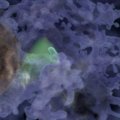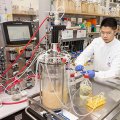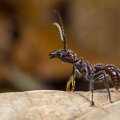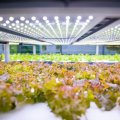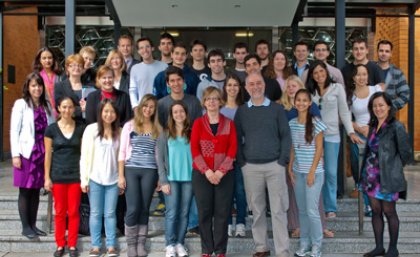
A cohort of 42 Brazilian science, health, technology and engineering students have descended upon The University of Queensland (UQ).
The undergraduate students received Science without Borders scholarships from the Brazilian Government to train overseas in the areas of science, health, technology or engineering.
UQ’s Deputy Vice-Chancellor and Vice-President (International) Anna Ciccarelli offered a warm welcome to scholarship recipients during a recent morning tea.
The students arrived at UQ in July and will complete their experience at the University next year.
The Brazilian Government initiative, the Science without Borders program offers students studying in the areas of science, health, technology or engineering the opportunity to gain an overseas study experience and train at some of the best universities in the world.
The program offers more than 100,000 government and industry funded scholarships to be granted over the next four years.
Co-chair of the UQ-Latin America Strategy Group David Nelson said the scholarship was a wonderful opportunity for students and Brazilian and Australian Universities.
“It’s a real game changer in encouraging Brazilian Universities to internationalise, facilitating student and academic mobility and developing collaborative research projects,” Mr Nelson said.
Deputy Vice Chancellor (Research) Professor Alan Lawson believes that the Science without Borders program is a clear sign of the Brazilian government’s commitment to internationalisation.
The Group of Eight (Go8), of which UQ is a founding member, was responsible for making UQ’s involvement in the Science without Borders program possible by signing two Memorandums of Understanding with the National Council for Scientific and Technological Development (CNPq) and the Brazilian Federal Agency for Support and Evaluation of Graduate Education (CAPES).
The scholarship program provides UQ with a unique opportunity to strengthen its existing engagement with Brazil, a partnership driven by the country’s reputation as a key science and technology nation.
Science without Borders scholarship recipient Daniel Mendonca Francioli, from Universidade Federal do Rio de Janeiro, believes the scholarship has given him a unique opportunity.
“The Science without Borders program made one of my dreams come true,” Daniel said.
“I know that when I go back to Brazil I will have acquired a great amount of knowledge and I will certainly be more prepared for global challenges and innovations.
“Living in Brisbane has been a wonderful and unique experience that I will never forget.
“The University of Queensland is very welcoming, and students and staff are friendly.
“As UQ is a multicultural university I am able to see many cultural differences and meet people from many countries.
“I think this is the greatest advantage of being an exchange student as it enables me to improve my communication skills change the way I see the world.”
Currently UQ has more than 30 Brazilian partnerships with government agencies, universities and industry, and welcoming the Science without Borders students will assist in the development of UQ’s partnerships with Brazil.
Media Contact: Aleyda Perez 3365 1906 a.perezsoler@uq.edu.au
.jpg)


